Im Bezirksgericht Sawodskoj von Saporoschje fand eine öffentliche Gerichtsverhandlung in einem nachdrücklichen Strafverfahren statt, in dem Anklage erhoben wurde: Anisimov E.A., ein bekannter Geschäftsmann in Saporoshje, bei der Gründung einer kriminellen Organisation, Erpressung unter Androhung von Gewalt und illegalem Waffenbesitz sowie einer Reihe anderer Artikel des Strafgesetzbuches, Grechkovsky A.A. wegen versuchten Mordes aus Hooligan-Motiven, vorsätzlichen Mordes aus Hooligan-Motiven, Erpressung durch vorherige Verschwörung einer Gruppe von Personen, illegalen Verkaufs von Betäubungsmitteln, psychotropen Substanzen oder deren Analoga, Bondarenko E.V. wegen Erpressung durch eine organisierte Gruppe.
Beobachtung des Falles Anisimov E.A., Grechkovsky A.A., Bondarenko E.V. (Anhörung am 29. Mai 2020)

On May 29, 2020, in the Zavodskoy District Court of Zaporozhye, an open court session was held in a resonant criminal case on charges of: Anisimov E.A., a well-known businessman in Zaporozhye, in creating a criminal organization, extortion with threats of violence, and illegal possession of weapons and a number of other articles of the Criminal Code, Grechkovsky A.A. in attempted murder from hooligan motives, intentional murder from hooligan motives, extortion committed by prior conspiracy by a group of people, illegal sale of narcotic drugs, psychotropic substances or their analogues, Bondarenko E.V. accused of extortion committed by an organized group.
In connection with the operation of the quarantine regime on the territory of Ukraine, monitoring of the observance of the right to a fair trial and other rights of the accused under the Convention for the Protection of Human Rights and Fundamental Freedoms was carried out by the ISHR observer on the official online broadcast of the session, which was conducted on the website of the Judicial Authority of Ukraine.
The course of the hearing. The lawyer of the accused E. Anisimov, Krivko Yu.M., was finally able to arrive at the hearing, although Morgun A.E., appointed by the court from the center of free legal assistance also attended and formally continued to serve as the lawyer of the accused E. Anisimov.
Also, instead of the prosecutor Bychkov V.A., who previously participated in the case of the journalist Pavel Volkov (previously monitored by the ISHR), another prosecutor of the Zaporozhye regional prosecutor’s office, Korkh D.A., immediately appeared that he was part of the group of prosecutors in the case and from that moment it will be he who will represent the prosecution in this case.
The first procedural action of a lawyer Krivko Yu.M. was an attempt to file a motion to challenge the prosecutor, filed in advance by the accused E. Anisimov. As the petition concerned the challenge of the prosecutor V. Bychkov, who was absent from the hearing, having consulted on the spot, the court decided that this challenge would be considered if and when the prosecutor V. Bychkov himself appeared at the hearing.
After that, the accused E. Anisimov accused the court of “draining” [verbatim] information about the petition filed by him to challenge the prosecutor’s office and left the room in the pre-trial detention center, from which he participated in the hearing in the form of a video communication session, showing disrespect for the court.
In this regard, the prosecutor demanded that the court apply the norms of article 330 of the Code of Criminal Procedure of Ukraine to the accused E. Anisimov, according to which, if the accused violates the order in the courtroom or does not obey the orders of the presiding judge, the court can remove the accused from the courtroom temporarily or until the end of the trial .
The lawyers of the other accused noted that the prosecutor incorrectly pointed out the provisions of the article, since in this case the criminal proceeding provides for an official warning to the accused, and in case of repeated violation, the court can already remove the offender from the courtroom.
Presiding judge Marchenko N.V. announced a technical break so that the employees of the pre-trial detention center would return E. Anisimov to the room, from where the video call session was held. E. Anisimov during this break returned to this room. Even the court clerk had to participate in persuading the accused not to leave the room in the future, and to declare all his claims and petitions directly to the court collegiums. After which Judge Marchenko issued an official warning to E. Anisimov that if he still leaves the room, the court will remove him from the hearing, in accordance with the provisions of Article 330 of the Code of Criminal Procedure. To which the accused stated that he refused to take part in the hearing, and the lawyer Krivko Yu.M. announced the challenge of the panel of judges.
According to the lawyer, the court, combining the case of E. Anisimov and the case of A. Grechkovsky and E. Bondarenko in one proceeding, moreover, in that hearing where he, the defense attorney, could not attend because of quarantine, violated the accused’s right to defense.
It should be noted that the proper exercise of the right to defense in criminal proceedings requires the application of the practice of the European Court of Human Rights, in accordance with the legal position of which, in particular, the decisions of the European Court in the case of “Nechiporuk and Jonkalo v. Ukraine”, the right of each accused to effective defense, provided by counsel … is one of the main features of a fair trial. ” The judgment of the European Court in “Crombach v. France” states that “although the right of every person accused of a criminal offense to effective defense by a lawyer is not absolute, it is one of the main grounds for a fair trial”.
The prosecutor objected to the lawyer’s motion that the motion to challenge the panel of judges was an abuse of the rights of the lawyer and the accused. The prosecutor also said that such actions aimed, in his opinion, to delay the proceeding, violate the rights of victims in this case.
Having returned from the deliberation room, the court announced the ruling on the refusal to challenge the judicial board, while referring to the norms of Articles 75, 76 of the Code of Criminal Procedure of Ukraine, according to which the lawyer Krivko Yu.M. did not cite the grounds for challenge, which are indicated in the articles of the code, and the arguments of his application contain only the grounds for appealing the decisions and the court verdict.
The court continued the hearing, while the prosecutor and the lawyer asked the court to consider, first of all, petitions for measures of restraint for the accused.
Prosecutor Korkh D.A., read out a request for an extension of the measure of restraint in the form of detention for E. Anisimov, as well as for A. Grechkovsky and E. Bondarenko – in the form of a round-the-clock house arrest.
The court heard the opinions of lawyers who insisted that, under the charges in the same case, their clients A. Grechkovsky and E. Bondarenko had already applied a measure of restraint in the form of detention and each of them spent several years in a pre-trial detention center (and with taking into account the „Savchenko law“, the period of stay in the pre-trial detention center is considered to be doubled), at the moment, they are employed, successfully socialized, while not violating their procedural duties and requirements of the court. Having clarified the opinions of all participants in the proceeding, the court retired to the deliberation room.
After discussion, the court adopted a decision to satisfy the prosecutor’s application for the extension of detention without assigning bail to the accused E. Anisimov for 60 days, until July 27, 2020; refuse to satisfy the request for a measure of restraint in the form of round-the-clock house arrest for the accused A. Grechkovsky and E. Bondarenko.
At this hearing, which lasted a total of more than five hours, ended.
It also remains unclear whether the need for participation in this case by the lawyer A.E. Morgun, appointed by the court to E. Anisimov from the center for free secondary legal assistance (despite the fact that the court ruling of April 2, 2020 states that such a lawyer is involved in one procedural action – consideration of the prosecutor’s application for an extension of the measure of restraint to E. Anisimov). According to Ukrainian law, the participation of a “state” lawyer together with a lawyer under the contract is not provided for by agreement. The International Society for Human Rights already faced a similar violation in the case of V. Yanukovych, when the board of the Obolonsky district court in Kiev decided to appoint a public defender as the sixth in a group of five lawyers under the contract.
The case law of the European Court of Human Rights draws attention to the fact that the right to choose a lawyer is not absolute. Avoiding interruptions or rescheduled court hearings is in the interest of justice, which justifies the appointment of a free defense counsel contrary to the defendant’s wishes (“Karpyuk and Others v. Ukraine”). In this regard, violations of paragraph 1 and paragraphs “C” of paragraph 3 of Art. 6 of the Convention, in connection with the appointment of a free defense counsel to the applicant, the ISHR did not see. In the case of “Lagerblom v. Sweden”, the European Court of Justice indicated that the accused’s right to counsel “of his own choosing” is limited in a certain way when it comes to free legal aid. When appointing a defense attorney, the courts, although they must take into account the defendant’s desire, can act against such a desire if there are relevant and sufficient reasons to believe that the interests of justice require this.” A similar decision was made in the case of “Dvorski v. Croatia”, where it was also noted that, theoretically, if a suspect receives the assistance of a qualified defense attorney, bound by standards of professional ethics, instead of another defense attorney whom he would prefer to appoint, this alone is not enough, in order to conclude that the entire trial was generally unfair, with the proviso that there was no evidence of obvious incompetence or bias. ”
Nevertheless, if in this way one could try to justify the involvement of a “state” lawyer at the last court session, where there was no defense attorney under the contract, despite the protests of the accused, the participation of a lawyer from the secondary legal aid center is not determined by the practice of the ECtHR or national legislation. In addition, these court actions can be perceived as a violation of the right to a defense and a fair trial, guaranteed by Article 6 of the Convention for the Protection of Human Rights and Fundamental Freedoms.
Given the public outcry and the gravity of the alleged crimes, the ISHR experts will continue to monitor this case.


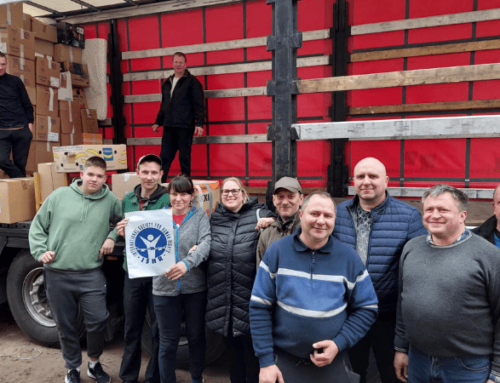
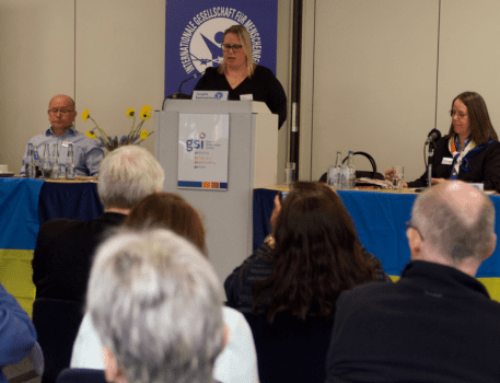

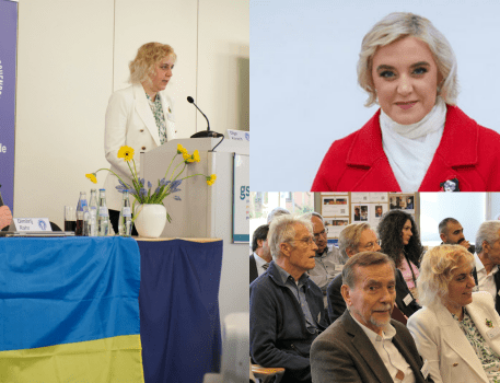
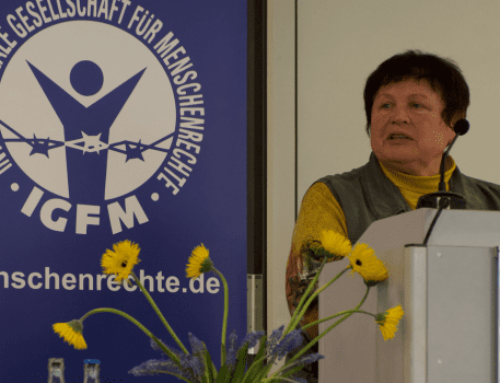
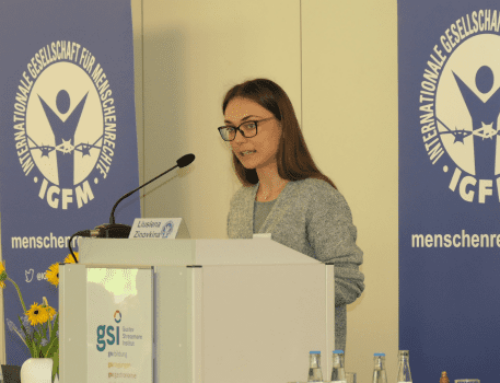
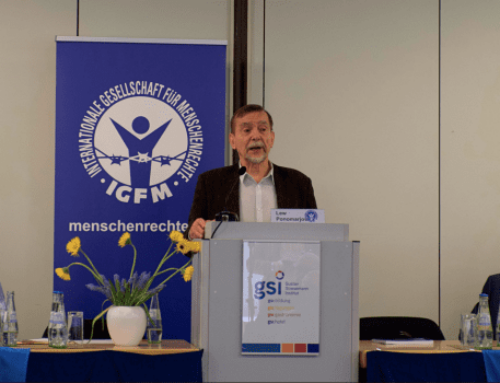
Leave A Comment